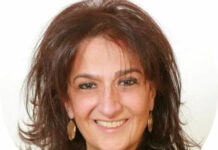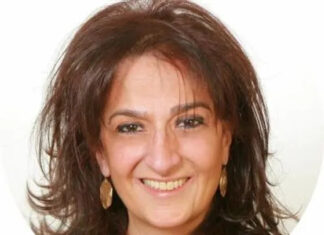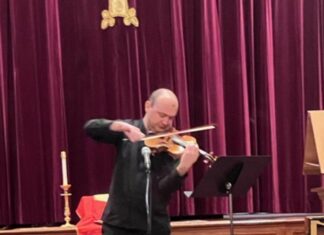By Hagop Vartivarian
WATERTOWN — Helene was born on June 26, 1933 in Boston to the tradition-respecting household of Khachadoor and Yeghsa Pilibosian of Kharpert. Her parents, survivors of the Armenian Genocide, remained strongly attached to their roots. She attended Watertown High School and the Katharine Gibbs School, and went on to Harvard University, graduating with a degree in the humanities in 1960. She married Beirut-born Hagop Sarkissian, whose father, well-known Armenian Democratic Liberal Party (ADLP) member, Hovhannes Hovsep Sarkissian, contributed to the daily newspaper Zartonk for many years.
Hagop Sarkissian worked at the Baikar Association. Helene’s amiable father Khachadoor (1903-1989) was one of the founding members of the Tekeyan Cultural Association in the United States. After the latter retired, he gladly helped at the Baikar Association, particularly in administrative matters.
In 1964, Helene was appointed editor of the Boston ADLP newspaper, the Armenian Mirror-Spectator, thus becoming the first female editor of the ADLP press. Her assistant was Noubar Agishian of Beirut, who was also the assistant editor of the Armenian-language daily newspaper Baikar. Noubar was preparing his doctoral degree in physics. Helene’s husband, Hagop, who himself was an ADLP member, also worked at an American publishing house. As he was quite familiar with the world of journalism, he was able to be helpful in Helene’s work. Helene’s salary in those days, 40 dollars a week, was in itself an indication of her spirit of sacrifice. She succeeded two editors who were very well known in the Armenian community — Bob Vahan and Varoujan Samuelian (distinguished by the nickname “Juicy”).
Helene Pilibosian joined the Bay State ADLP Zovickian (Dzovigian) Youth Chapter. Her political party godfather was the then-editor of the newspaper Baikar, Dr. Nubar Berberian. In this fashion, the Pilibosian-Sarkissian family continued the fine legacy of its parents through the ADLP.
Every week, Helene transmitted to the American-Armenian readers of the newspaper information from various Armenian communities of the United States, as well as from Armenians in other countries abroad and in the homeland. The news media in those days adopted a different type of behavior, especially considering that the ADLP newspaper was being edited during some of the most intense days of the Cold War. She maintained the traditional direction of the political party despite the pressures of American foreign policy against the Soviet Union.









